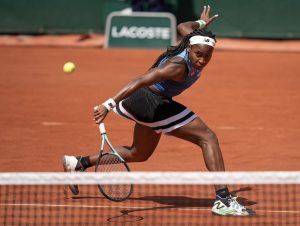Since the marathon-match between Kevin Anderson and John Isner in the Wimbledon semifinals last season, which finished 7-6 6-7 6-7 6-4 26-24 in the South African’s favor after six hours and 36 minutes, change has been inevitable in tennis. Anderson, who went on to lose to Djokovic in straight sets in the final, was vocal in calling for it. He argued that it was time to bring an end to the sort of grueling contest he had just endured by changing the rule that required deciding sets at the Slams, other than the US Open, to be won by two clear games.
The reasoning was not particularly hard to understand. His match with Isner was long without summoning many moments of high drama as the two big servers were almost untouchable at the line. Indeed, the advantage of server over returner seemed to become increasingly apparent as the match wore on as both men’s legs understandably began to tire. The length of the match also had the knock on effect of delaying the second men’s semifinal, which in turn caused a delay to the start of the women’s final.
So it is surely unsurprising that Anderson’s call for reform has been heeded. Wimbledon is to introduce tiebreaks at 12-12 in the decider from 2019 onwards, a laudable decision that strikes a balance between modernity and tradition, spectacle and substance. At the Australian Open, in contrast, sense has not prevailed. Instead, beginning at January’s tournament, a championship tiebreak of first to ten will be played to decide fifth sets that reach 6-6.
It is a decision flawed in almost every possible sense. The championship tiebreak, which has replaced the deciding set altogether in doubles on the main tour to the great detriment of that discipline, will surely be unknown to the majority of casual fans watching the action in Australia. That will serve to introduce unnecessary confusion to a sport that already struggles to command year-round attention. But more importantly, it undermines what makes Grand Slam tennis so enthralling.
The best of tennis is the almost unbearable tension and excitement of a contest that extends deep into a deciding set. This tension and excitement rise higher and higher as the decider progresses, with the quality pf the tennis often rising in conjunction as both players strive to achieve a sustained breakthrough. A tiebreak, whether played to seven or ten points, cannot come close to manufacturing that. Rather, it is a pale and cheap imitation of drama, invariably over too quickly to be truly memorable.
How many thrilling fifth-sets will never now be repeated? How much great tennis will now never be played? The idea that the thunderous clash between Djokovic and Wawrinka in the fourth round in 2013 that ultimately announced the Swiss’ arrival on the big stage would have been improved by halving the length of the fifth set is absolutely ludicrous. The match would not have been nearly as special. Neither would last year’s semifinal between Halep and Kerber that the Romanian just edged 9-7 in the third.
Wimbledon has taken a step that allows it to preserve the heavyweight contests such as the 6-4 3-6 7-6 3-6 10-8 thriller between Djokovic and Nadal in the semifinals or 2017’s memorable second-round battle between Konta and Vekic, which saw the Briton triumph 7-6 4-6 10-8 to the raucous delight of the Centre Court crowd. But, the draining and nigh on endless clashes that left players unable to rouse themselves for another match will now, fortunately, be a thing of the past.
But at the Australian Open, they will be no more. Time has been called on the true five-set thriller. In place of its grandstand conclusions will come the drab tiebreaks that already bring such unfitting ends to great matches at the US Open like Nadal and Thiem’s quarterfinal. At least in New York it has always been done that way. The fans may be being short-changed but they know no different. Sadly for the Australian crowd, easily the most knowledgeable and respectful of the four Slams, they will be denied even that cold comfort.






